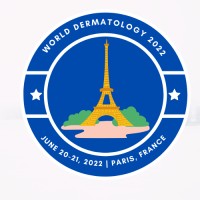
Hyoung Moon Kim
Maylin Clinic, ILSAN
Title: Evaluating Whether Radiofrequency Irradiation Attenuated UV-B-Induced Skin Pigmentation by Increasing Melanosomal Autophagy and Decreasing Melanin Synthesis
Biography
Biography: Hyoung Moon Kim
Abstract
Autophagy is involved in the degradation of melanosomes and the determination of skin color. TLR4 and tumor necrosis factor (TNF) signaling upregulates NF-κB expression, which is involved in the upregulation of mTOR. The activation of mTOR by UV-B exposure results in decreased autophagy, whereas radiofrequency (RF) irradiation decreases TLR4 and TNF receptor (TNFR) expression.
We evaluated whether RF decreased skin pigmentation by restoring autophagy by decreasing the expression of TLR4 or TNFR/ NF-κB /mTOR in the UV-B-irradiated animal model. UV-B radiation induced the expressions of TNFR, TLR, and NF-κB in the skin, which were all decreased by RF irradiation. RF irradiation also decreased phosphorylated mTOR expression and upregulated autophagy initiation factors such as FIP200, ULK1, ULK2, ATG13, and ATG101 in the UV-B-irradiated skin. Beclin 1 expression and the expression ratio of LC3-I to LC3-II were increased by UV-B/RF irradiation. Furthermore, melanin-containing autophagosomes increased with RF irradiation. Fontana-Masson staining showed that the amount of melanin deposition in the skin was decreased by RF irradiation. This study showed that RF irradiation decreased skin pigmentation by restoring melanosomal autophagy, and that the possible signal pathways which modulate autophagy could be TLR4, TNFR, NF-κB, and mTOR.

